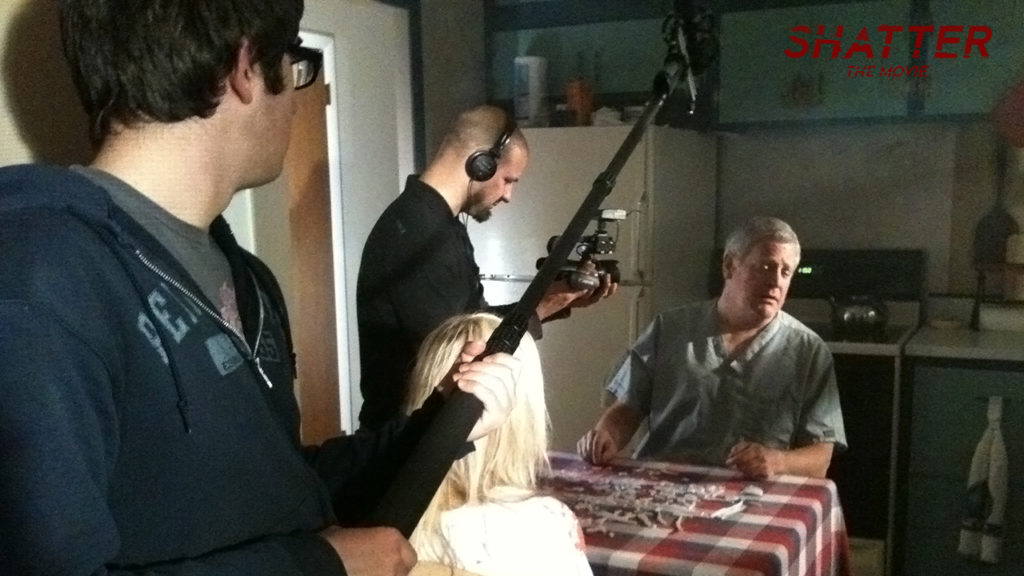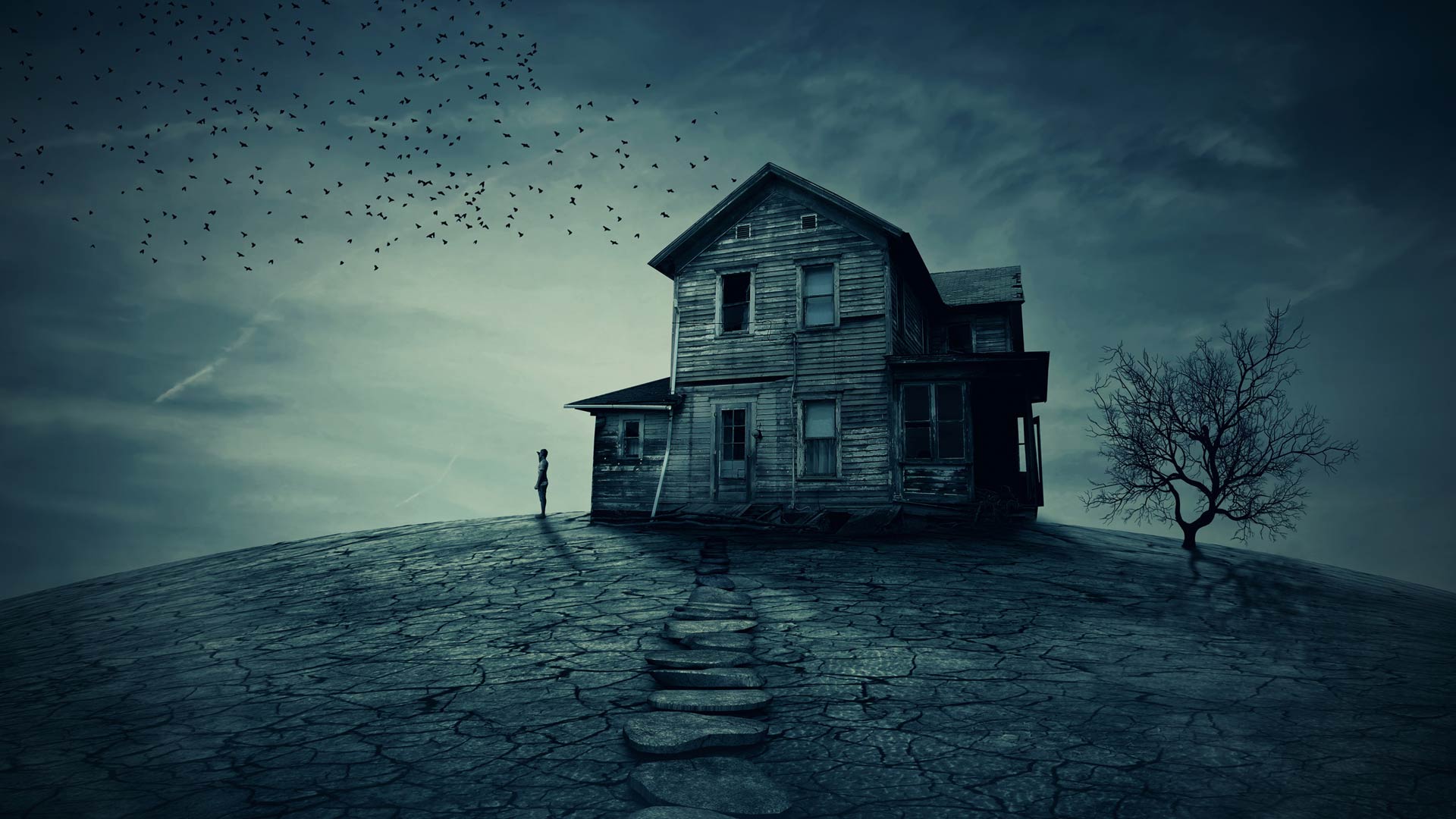Behind the Glass: SHATTERED DREAMS
We were able to locate the fearless and feral director of SHATTER the movie! We heard a tale that he was stalking the Chupacabra around San Diego, but found him street-side, ranting wildly and collapsed in a Red Glass case of emotion. The interns pulled him in, cleaned him up, and asked him a few questions for our ravenous fans. One intern was lost in the cause…of course, we’ll never forget you Intern #3!

Interviewer Guy: So let’s start off with exactly what kind of film is SHATTER?
Director Guy: I really don’t know, but I think SHATTER would formally identify as a psychological thriller and crime mystery, but it is unique in the way it mixes the horror genre into the story-line and bends the seams of traditional crime-thriller genre films with surrealist undertones. The story ends up being like a film-version of a puzzle cube. Just when you feel like you’ve solved the puzzle you notice that one square on the other side just doesn’t quite match up.
Interviewer Guy: What did you specifically hope to achieve with the film?
Director Guy: We’re a fan-made film studio, so we wanted to make a film for horror-fans first and foremost. Of course, we also wanted to be true to RGF’s style, so it had to be a twisted, David Lynch inspired thriller/horror film but with much faster pacing. This film dives head-first into a schizophrenic episode that everyone watching will be trying to solve together. Then we topped it with more mysteries and a lingering sense of uncertainty and suspense. You really never know what’s coming next. We aimed for was a massive collection of Easter eggs that go right over your head the first time you see the film and the second time you see it, most of them makes sense. You’re finally able to connect the dots and dig through some of the layers….but it still doesn’t give you everything. Some of it is left to interpretation, because that’s just our style. I personally like it when a film forces you to actively think about what happened. There’s definitely an art to that.
Interviewer Guy: Is there a specific style or tone you were going for with the film?
Director Guy: Shatter is most definitely a throwback to the classic film noir look with your stereotypical detective. Stylistically, we focused on a distinct tone that relates to the mentality of the main characters. It’s like they’re living in the past but also in the present at the same time. So, we styled the film to be reminiscent of the early 70’s or 80’s film noir, then bridged it with modern imagery and tech. The end result blurs the line between the classic “gumshoe” detective and an ominous present-day; which actually felt pretty disturbing in itself.
Interviewer Guy: Why did you want to make Shatter?
Director Guy: We’d been making films for a while and steadily learning how to create bigger and better films. I was actually inspired by a few fans to do something big and to challenge myself, using all of the experiences that I had been gathering over time. There’s definitely something to be said for both the art of film and the art of film making. Shatter became a concentrated effort to explore both art forms.
Interviewer Guy: And what’s the difference?
Director Guy: I know everyone is familiar with WHAT a film is as an art form, but HOW you make a film is an art form all in its own. Filmmakers are obsessed with the “what” to show on-screen, and that part is obvious. However, for most indie filmmakers, we have to also become obsessed with “how” to show the “what” – because indie film making is much more restrictive and extremely resource limited. Shatter was filmed on a “pocket-change” budget…basically spending only $10 for each shoot.
Interviewer Guy: That seems stupid. Why didn’t you try for a bigger budget?
Director Guy: A good film means different things to different people, but great no-budget films exist, and to me, are also a rare treasure. Some of them are shot on even less than this film. I admire those filmmakers that took the time to channel their creativity and bring a vision to life, from literally nothing but desire and hard work. When you remove all of the glitz and glam of money, it really limits connections, locations, actors, craft services, props, camera equipment, editing, audio, etc….creating a film becomes a very different challenge and takes on a different look from the film you see in your head as a Director. It’s a bit crazy to approach a project like this with no money, but it’s also pure and uninfluenced that way.
Interviewer Guy: So did you succeed in your goals?
Director Guy: That’s always a hard question to answer. Of course, when you sit back and watch the final cut 5 years after you started, you see a lot of things that you would’ve done differently if you had a time machine handy. But who knows if those changes would actually make the film better or worse. At some point you have to walk out of the studio, because you could certainly tinker with a film forever. Horror-films can be especially complex and fickle like that…and I think it’s still a genre that contains the highest number of flops out of any other. For me though, SHATTER is definitely a disorienting thriller that ignites a fire, burns with intensity, and ends with a bang that leaves you sifting through the ashes of sanity. So if you like that kind of thing and enjoy the film, then I’d say it’s a success.
Interviewer Guy: So what else can people expect?
Director Guy: In the end, SHATTER is a bit unique. I would say that although Shatter relies heavily on the psychological aspects of the characters, it still gets in your face when the story calls for it, but at the same time is subtle and thought provoking; there’s even a bit of comedy just to round out the edges. Overall, it’s definitely not a traditional genre film, but that’s just what we like to do.

Comments are closed.